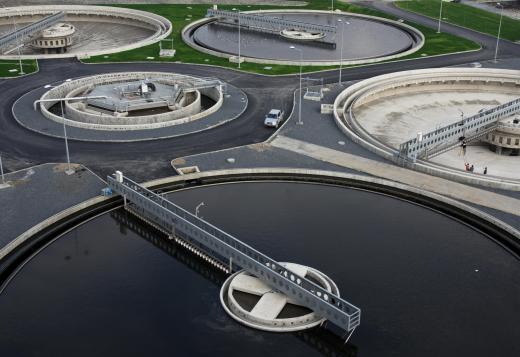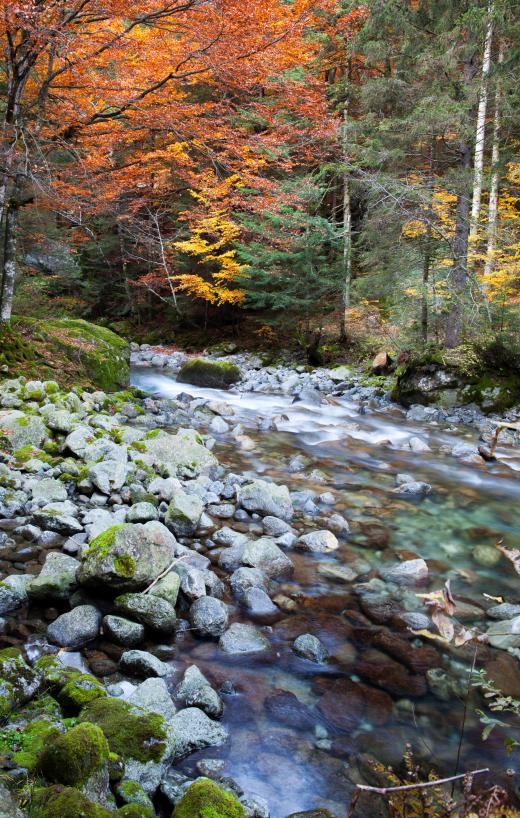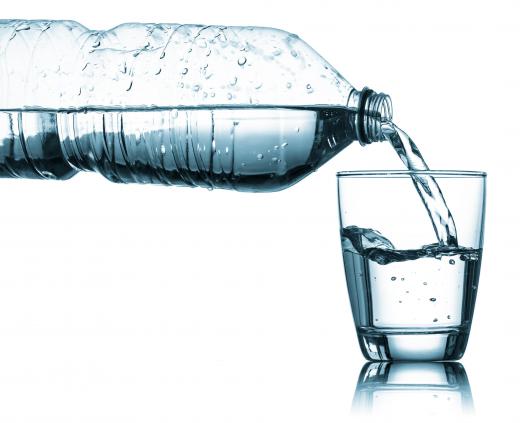What is Raw Water?
Raw water is a broad term that describes any water that has not been treated to remove bacteria and other contaminants. While this is a controversial subject, proponents of raw water argue that tap water is so heavily treated with chemicals that it can be potentially harmful, or even contribute to disease. These proponents also believe that untreated water in its natural state offers vital health benefits and minerals. In general, most untreated water is unsafe for consumption, and only a limited supply of raw water that has been subject to testing should be considered safe to consume.
Raw water comes from a variety of locations, including both surface and subsurface sources. Surface sources include ponds, lakes, and other water bodies. Subsurface water sources include springs and wells located underground, which often require drilling or pumping to access. The untreated sewage that enters a municipal sewage treatment plant is not considered raw water within this definition.

Any untreated water poses serious health risks, including those associated with E. coli and other bacteria. Most developed countries have extensive water treatment systems in place to decontaminate water and remove potential health hazards. Using chlorine and other chemicals, municipal water treatment plants remove excess minerals and odors to improve water safety, appearance, and taste. This water then travels through water supply pipes to homes and businesses. By most health standards, this water is safe for consumption and free of most major contaminants.

Even bottled water often undergoes a vigorous treatment process to remove bacteria and excess minerals. Spring water is often subject to mechanical pumping, sunlight exposure, and even chemical treatment, which some proponents believe ruins the natural benefits of the water.
Some stores now sell bottled raw water, which is popular with raw food enthusiasts and those who believe in the potential health benefits of raw water consumption. This water typically comes from gravity-fed sources, and uses no pumps or drilling. The water is bottled and capped at the source to keep air and potential contaminants in the air out of each bottle. Much of this water comes from underground sources, and experiences little or no exposure to the sun or ultraviolet rays, which is another important factor to some raw water fans.

The sale of raw water is permitted in some regions and banned in others. Generally, municipalities that allow this water to be sold require rigorous testing to check for bacteria and other potential health risks. Some raw water enthusiasts may also bottle their own water at local streams or lakes, though this water should also undergo thorough testing prior to consumption. Even water that appears clean and fresh may harbor unseen bacteria or other dangers, so proper testing is critical to disease prevention and good health.
AS FEATURED ON:
AS FEATURED ON:















Discussion Comments
@croydon - I can see why drinking water raw (or using it in other ways) could be appealing, but I personally don't think it's any more good for you than drinking pure water. You don't have to use chemicals to clean water, even from the tap. A good filter will do it, especially if it has a UV component.
It might not have any additional benefits, but it has absolutely no drawbacks either.
@bythewell - I can see the logic in wanting to drink raw water, as they have realized lately that having certain bacteria in your gut can be very good for you. There are also potentially healthful minerals dissolved in certain kinds of natural water sources. Chemically treated water might not always be the best way to go.
However, just any raw water won't do. Springs can be contaminated by pollution and by diseased animals. Rainwater often contains pollutants from the air, as does water collected through dew or mist. Even water from icebergs can be suspect.
With that said, any or all of those sources might also be fine and very good for you. It's just a matter of testing and making sure that they are safe and that they actually have benefits.
Please don't try to create your own raw water sources at home unless you know what you are doing (and have a university degree to prove it).
Even rain water is rarely safe these days, particularly if it isn't collected in pristine containers. There are just too many ways for water to be polluted by chemicals or bacteria or parasites.
Even if you insist on drinking unprocessed water yourself, absolutely do not give it to children. I know people want to get back to nature, but humans developed the ability to boil water for a reason. There's no way that ancient people who couldn't do this weren't sporting heavy parasite loads and that's not even taking pollution into account.
Natural isn't always the best way to go and there are a lot of different ways to be natural.
Post your comments